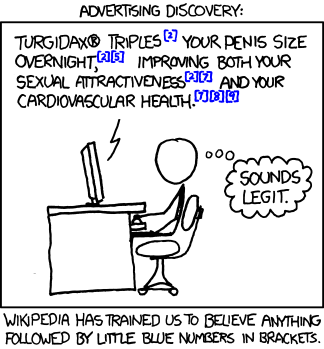 Bayer’s recent ad claims have become a real headache for the German drug company. The Center for Science in the Public Interest filed a lawsuit on September 30 against Bayer over ad claims for its One A Day Men’s Health Formula multi-vitamins. Bayer says that because its product contains selenium, it may reduce the risk of prostate cancer, which CSPI said has been proven false.
Bayer’s recent ad claims have become a real headache for the German drug company. The Center for Science in the Public Interest filed a lawsuit on September 30 against Bayer over ad claims for its One A Day Men’s Health Formula multi-vitamins. Bayer says that because its product contains selenium, it may reduce the risk of prostate cancer, which CSPI said has been proven false.
The nonprofit health advocacy group said it reached out to Bayer in June 2009, asking it to alter its marketing materials following the results of an eight-month clinical trial that showed that selenium does not prevent prostate cancer. It also showed selenium may actually have harmful affects such as an increased risk of diabetes. CSPI reported that Bayer threatened to sue for libel after the group spotlighted the alleged flaws in Bayer’s claims. And no wonder – Bayer pocketed almost $24 million in sales on this product during the past year.
Bayer might want to visit the Mayo Clinic website before it launches that libel suit. Mayo Clinic doctors apparently agree with CSPI:
“Some companies have suggested that daily doses of the mineral selenium, vitamin E or both may have helped to prevent prostate cancer. But further study has shown these supplements have no effect on prostate cancer. In some cases, these supplements may cause side effects or lead to other health conditions.”
Learn more: Why Prostate Cancer is Big Business, or about the Bayer lawsuit.



 And it’s about time. The Food & Drug Administration in the U.S. is looking for tattle-tales who are fed up with aggressive prescription drug advertising and promotion practices that skate around the truth. For the sake of clarity, let’s call this “lying”. The FDA’s new and long overdue
And it’s about time. The Food & Drug Administration in the U.S. is looking for tattle-tales who are fed up with aggressive prescription drug advertising and promotion practices that skate around the truth. For the sake of clarity, let’s call this “lying”. The FDA’s new and long overdue Bayer’s recent ad claims have become a real headache for the German drug company. The Center for Science in the Public Interest filed a lawsuit on September 30 against Bayer over ad claims for its
Bayer’s recent ad claims have become a real headache for the German drug company. The Center for Science in the Public Interest filed a lawsuit on September 30 against Bayer over ad claims for its